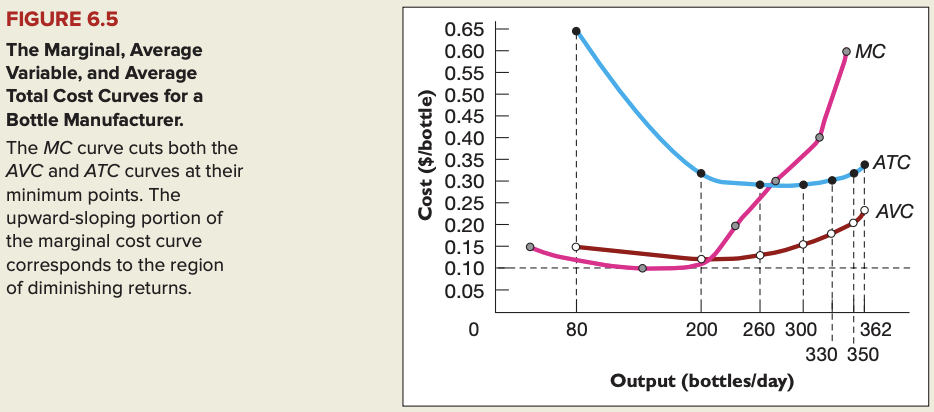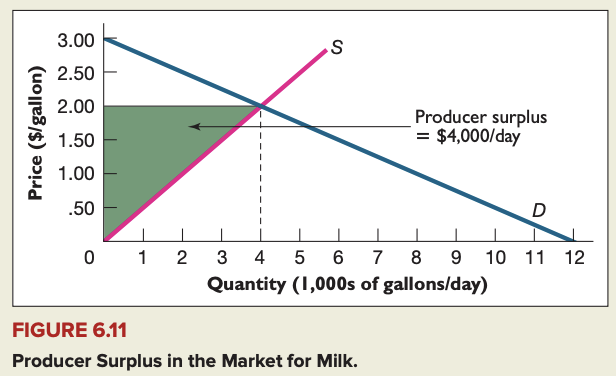Chapter 6 - Perfectly competitive supply
Profit-maximizing firms in perfectly competitive markets
Profit: total revenue a firm receives from the sale of its product minus all costs - explicit and implicit - incurred in producing it.
Profit-maximizing firm: firm whose primary goal is to maximize the difference between its total revenues and total costs.
Perfectly competitive market: market in which no individual supplier has significant influence on the market price of the product.
Price taker: firm that has no influence over the price at which it sells its product.
Characteristics of markets that are perfectly competitive:
- All firms sell the same standardized product.
- The market has many buyers and sellers, each of which buys or sells only a small a fraction of the total quantity exchanged.
- Productive resources are mobile.
- Buyers and sellers are well informed.
- That means they are aware of the relevant opportunities available to them.

Imperfectly competitive firm: firm that has at least some control over the market price of its product.
Factor of production: input used in the production of a good/service.
Short run: period of time sufficiently short that at least some of the firm's factors of production are fixed.
Long run: period of time of sufficient length that all the firm's factors of production are variable.
Law of diminishing returns: property of the relationship between the amount of a good/service produced and the amount of a variable factor required to produce it; the law says that when some factors of production are fixed, increased production of the good eventually requires ever-larger in creases in the variable factor.
Fixed factor of production: input whose quantity cannot be altered in the short run.
Variable factor of production: input whose quantity can be altered in the short run.
Fixed cost: sum of all payments made to the firm's fixed factors of production.
Variable cost: sum of all payments made to the firm's variable factors of production.
Total cost: sum of all payments made to the firm's fixed and variable factors of production.
Marginal cost: as output changes from one level to another, the change in total cost divided by the corresponding change in output.
Profit = Total revenue - Total cost
Profit = Total revenue - Variable cost - Fixed cost
Average variable cost (AVC): variable cost divided by total output.
Average total cost (ATC): total cost divided by total output.
Profitable firm: firm whose total revenue exceeds its total cost.

Determinants of supply revisited
- Among the relevant factors causing supply curves to shift are:
- New technologies
- Changes in input prices
- Changes in the number of sellers
- Expectations of future price changes
- Changes in the prices of other products that firms might produce
Supply and producer surplus
Producer surplus: amount by which price exceeds the seller's reservation price.
